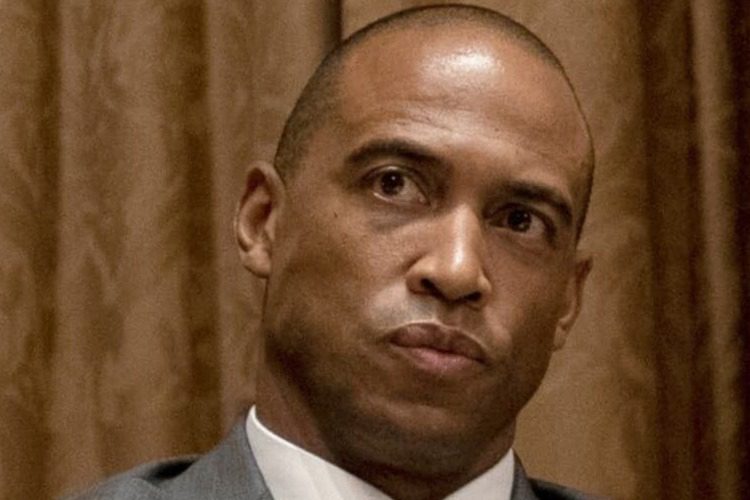Mississippi Dad Sparks Backlash After Admitting to Stealing Thousands from His 4-Year-Old Son’s Savings Account, Saying “He Won’t Know”
A Mississippi father is facing intense public backlash after openly admitting to stealing thousands of dollars from his 4-year-old son’s savings account — and then seemingly brushing it off by saying, “He won’t know.” The confession, which came during an appearance on a popular financial advice YouTube show, quickly went viral, igniting a nationwide debate about ethics, parenting, and financial responsibility.

The man, who appeared on financial analyst Caleb Hammer’s YouTube series Financial Audit, sat across from Hammer in what began as a routine discussion about debt, spending habits, and budgeting. Hammer’s channel, known for its blunt, reality-based financial guidance, often features individuals who open up about money problems in hopes of finding a path toward stability. But this episode took an uncomfortable turn when the man casually revealed he had dipped into his own child’s savings account to pay off personal expenses.
According to the conversation, the man admitted that he had taken several thousand dollars from the account, initially dismissing the seriousness of the act by explaining that his son was “only four” and “wouldn’t even know” the money was gone. When pressed by Hammer about the morality of his actions, he doubled down, suggesting he planned to replace the money later, though he could not say when or how.
The reaction from Hammer — and from viewers — was immediate. The host, known for his calm yet confrontational style, appeared visibly shocked by the admission. “You stole from your kid,” Hammer responded bluntly, emphasizing that the man’s justification didn’t change the fact that he had taken money meant for his son’s future. The exchange, which was uploaded as part of the full episode, quickly made its way across social media platforms, accumulating millions of views within days and sparking intense criticism from audiences around the world.
Comments flooded in across YouTube, X (formerly Twitter), and TikTok, where clips of the discussion circulated with captions like “Unbelievable” and “This is beyond selfish.” One viewer wrote, “This is heartbreaking. That money was probably meant for the kid’s education or future — and he’s acting like it’s no big deal.” Another commented, “The level of entitlement here is wild. Your child trusted you, and you just robbed his future for your convenience.”
Some defended the man, offering possible explanations such as financial desperation or poor money management skills, but even sympathetic voices agreed that taking from a child’s account crossed an ethical line. “If you’re struggling, there are always better ways,” one commenter said. “Borrow from family, get a side job, cut expenses — but never touch your kid’s savings.”
The episode also reignited a broader conversation about financial literacy and generational responsibility. Experts noted that situations like this often stem from a lack of understanding about money management, not just malicious intent. Still, as financial psychologist Dr. Melissa Grant told People, “There’s a deeper issue at play when a parent can rationalize taking from their own child. It speaks to emotional detachment from financial accountability — something that can have lifelong effects if not corrected.”
Hammer, who has built a reputation for holding guests accountable, addressed the controversy in a follow-up statement on his channel. He explained that while his goal is never to shame people, he feels a moral obligation to confront damaging behavior, especially when it affects dependents. “When I heard that he took money from his son’s savings, it wasn’t about judgment — it was about responsibility,” Hammer said. “This isn’t just bad financial planning. It’s breaking trust within a family.”
The man’s identity has not been publicly confirmed beyond his first name and state, but the fallout has been swift. Viewers began dissecting the video frame by frame, analyzing his demeanor and tone, with many describing his lack of remorse as the most disturbing part of the clip. Some speculated that he may not have fully grasped the gravity of his words or the public platform he was speaking on. Others suggested that his casual attitude reflected a larger cultural problem — one where financial shortcuts are normalized even when they involve those closest to us.
In Mississippi, where poverty rates remain among the highest in the United States, the story has sparked additional commentary on the pressures faced by young parents. The state’s median household income ranks near the bottom nationally, and financial strain is common, particularly among families with young children. “Economic hardship can push people to make choices they normally wouldn’t,” said Jackson-based financial advisor Teresa Howard. “But what’s alarming here isn’t just the act — it’s the lack of guilt or urgency to make it right. That’s where the public outrage is coming from.”
Online discussions have also touched on the legal implications of the man’s admission. While it’s unlikely he will face criminal charges — given that the account was likely under his name as a parent or custodian — the ethical breach has fueled debate about parental authority and ownership of children’s finances. Many parents open savings accounts for their children under custodial control, meaning the adult legally manages the funds until the child reaches a certain age. However, experts stress that such money is still intended solely for the child’s benefit. Using it for anything else, while technically permissible, violates the trust inherent in that arrangement.
Social media, unsurprisingly, amplified the fallout. On TikTok, where clips of the interview have garnered millions of views, users have stitched the video with their own reactions, ranging from disbelief to anger. Some even shared personal experiences of parents mishandling their childhood savings. “My mom did this to me,” one viewer wrote. “When I turned 18, my account was empty. I’ll never forget that feeling.” These testimonials added emotional weight to the conversation, revealing how early financial betrayals can leave lasting scars.
Despite the backlash, the man’s appearance on the show has prompted some meaningful conversations about transparency and growth. A few viewers have pointed out that admitting financial mistakes, even uncomfortable ones, can be the first step toward change. However, they emphasized that true accountability requires more than acknowledgment — it requires action. As one commenter put it, “Owning up to it is good. But fixing it is better.”
Hammer’s Financial Audit series has become a cultural touchpoint for a generation struggling to make sense of debt, inflation, and financial stress. The show, which mixes education with real-life storytelling, has built a loyal following by showing how money problems often reflect deeper emotional and behavioral patterns. In many ways, this latest episode serves as a cautionary tale not just about finances, but about the moral responsibilities that come with being a parent.
In the days since the interview aired, the story has continued to trend online, sparking think pieces and podcasts about ethics in personal finance. Even major parenting forums have picked up the topic, with heated threads debating whether financial desperation can ever justify taking from a child’s fund. Most agree that while life can be unpredictable and difficult, children’s money should remain off-limits. “It’s not about the dollar amount,” one parent wrote. “It’s about the message it sends. Kids learn what trust means from how we treat them.”
As for the man at the center of the controversy, he has yet to issue a formal apology or public clarification beyond what was said on the show. Some speculate that the viral reaction may have been more intense than he expected, while others believe the backlash could serve as a wake-up call. Whether he replaces the money or not, the public discussion around his actions has become much larger than one individual — it’s become a mirror reflecting how we define integrity, accountability, and family values in the age of online confessionals.
Ultimately, this story underscores how small financial decisions can carry profound emotional consequences. The trust between a parent and child is among the most sacred bonds, and when money enters that relationship, it can either strengthen or shatter it. The viral moment may fade, but its message lingers — that honesty, even in hardship, remains the cornerstone of responsible parenting.
In an era where financial struggles are more visible than ever thanks to social media, the episode serves as both a cautionary tale and a call to empathy. Viewers might judge the man harshly, but his story also exposes a broader reality: millions of families are quietly battling similar financial pressures behind closed doors. The hope now is that, instead of secrecy and shame, such conversations lead to greater awareness — and, perhaps, to fewer parents ever feeling tempted to say, “He won’t know.”



